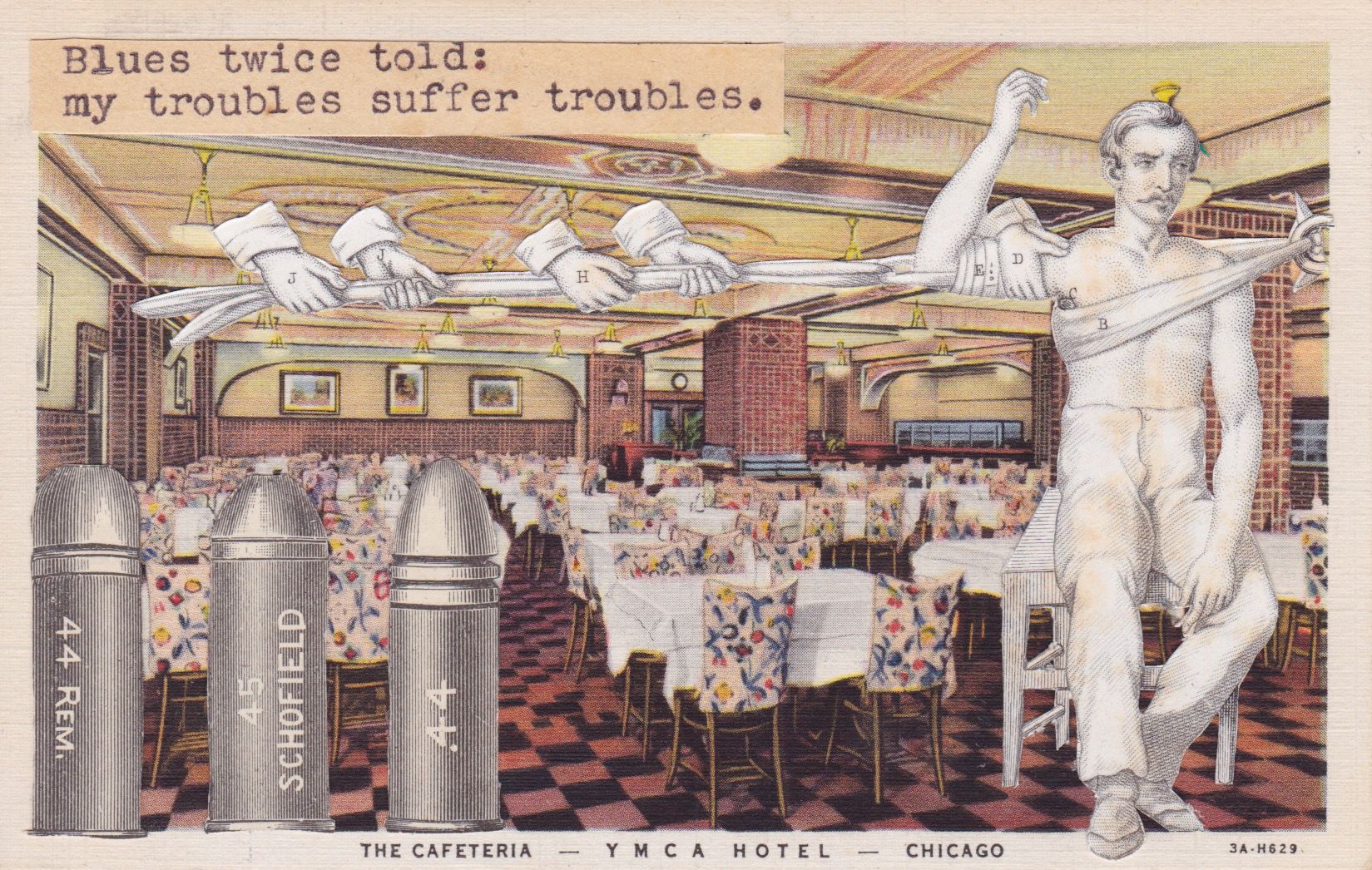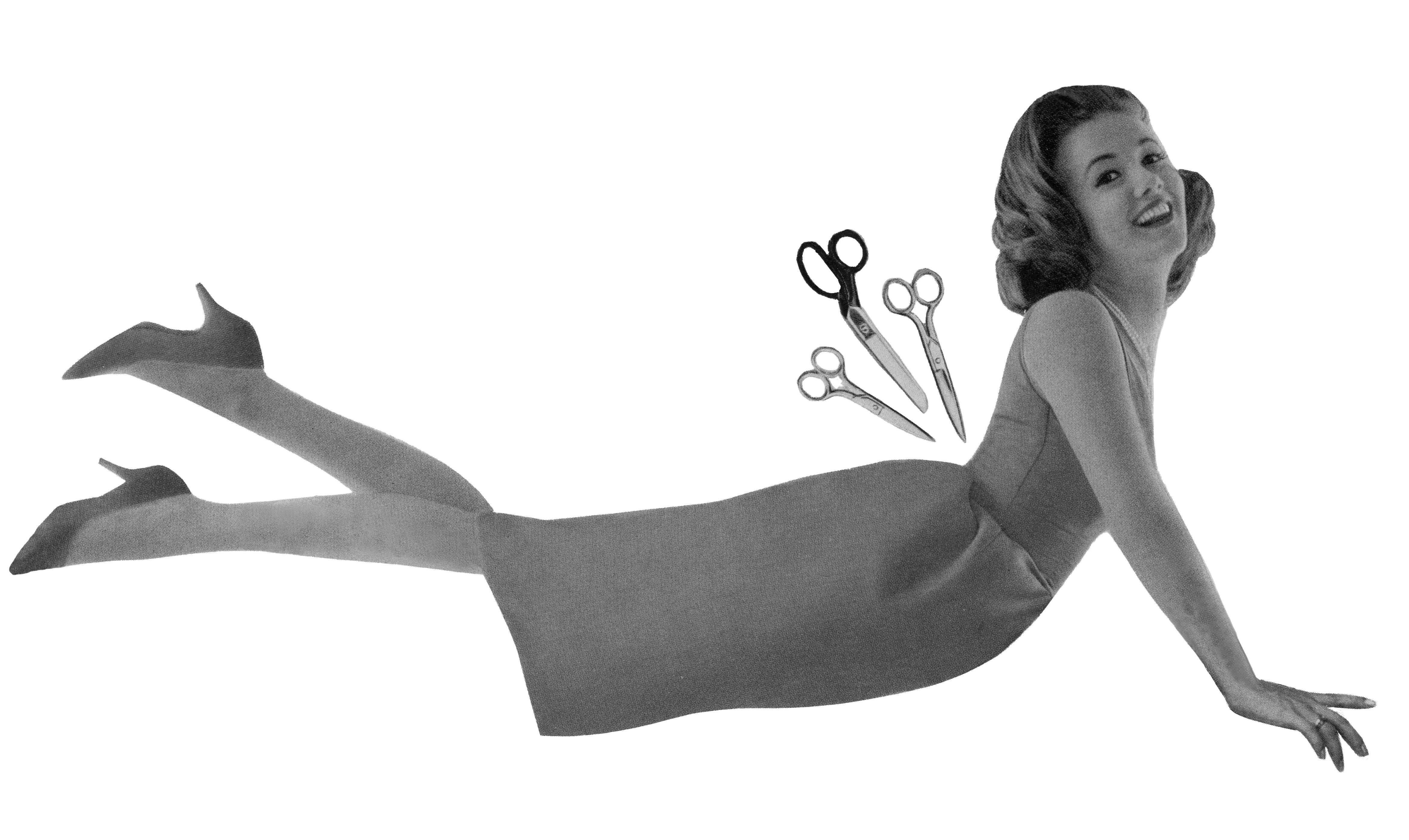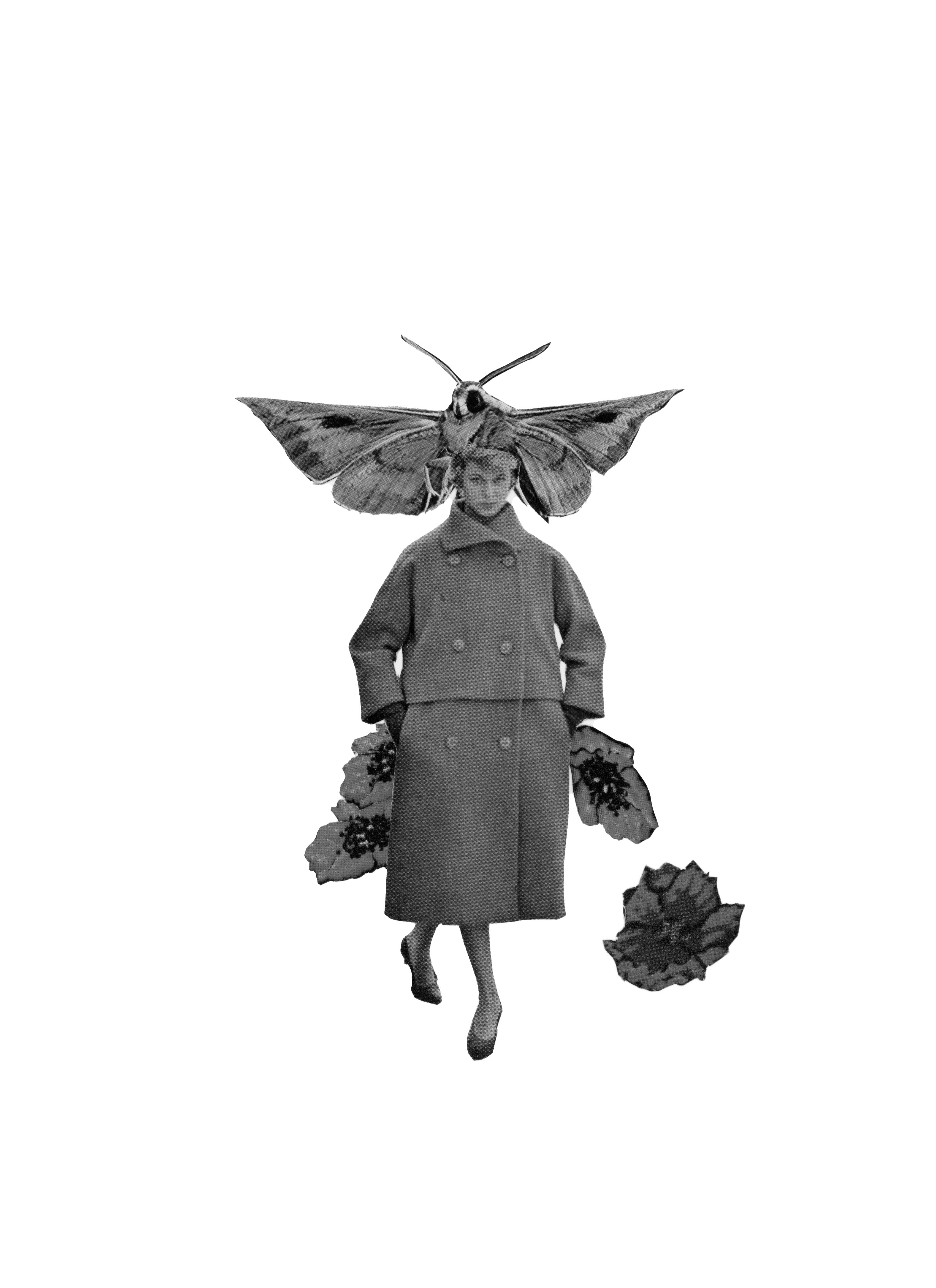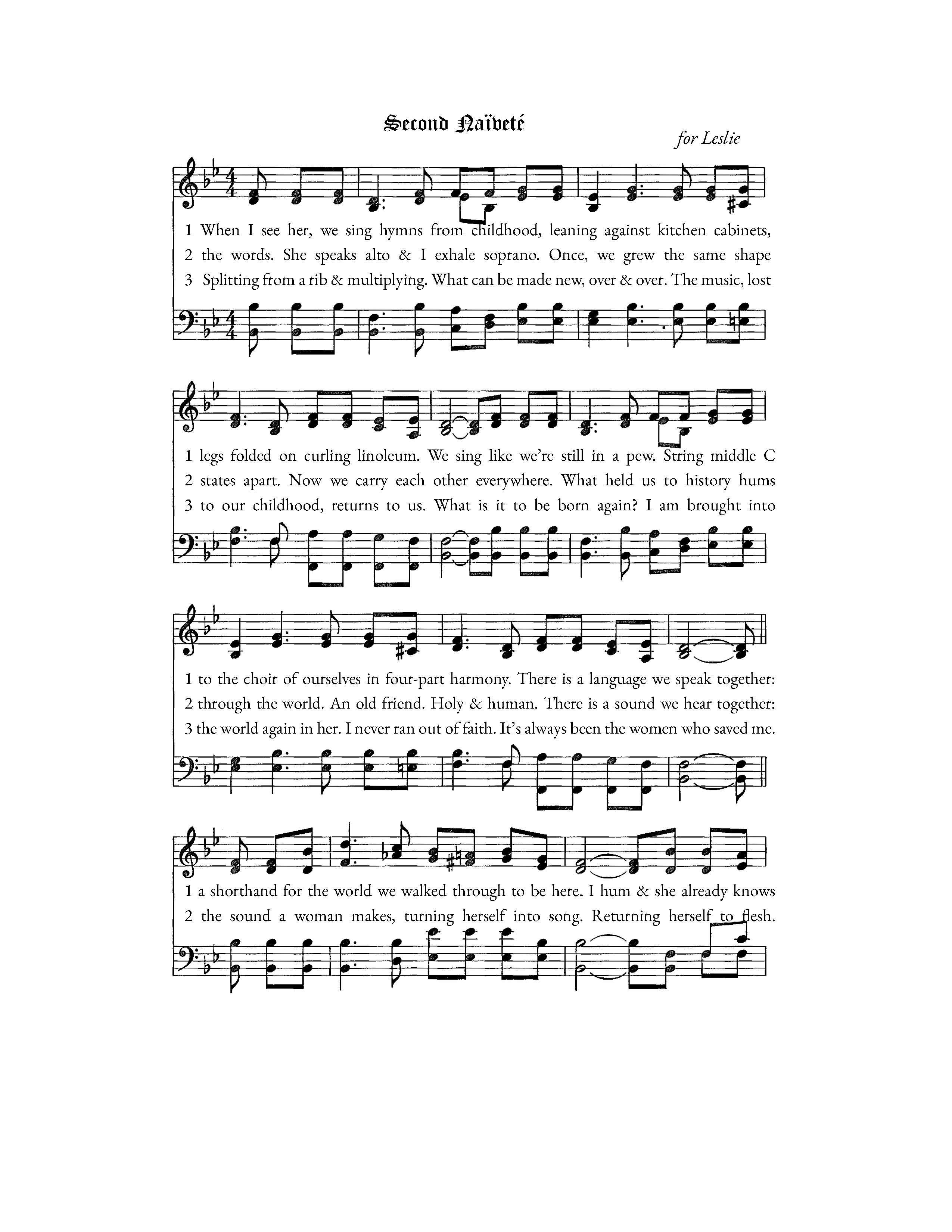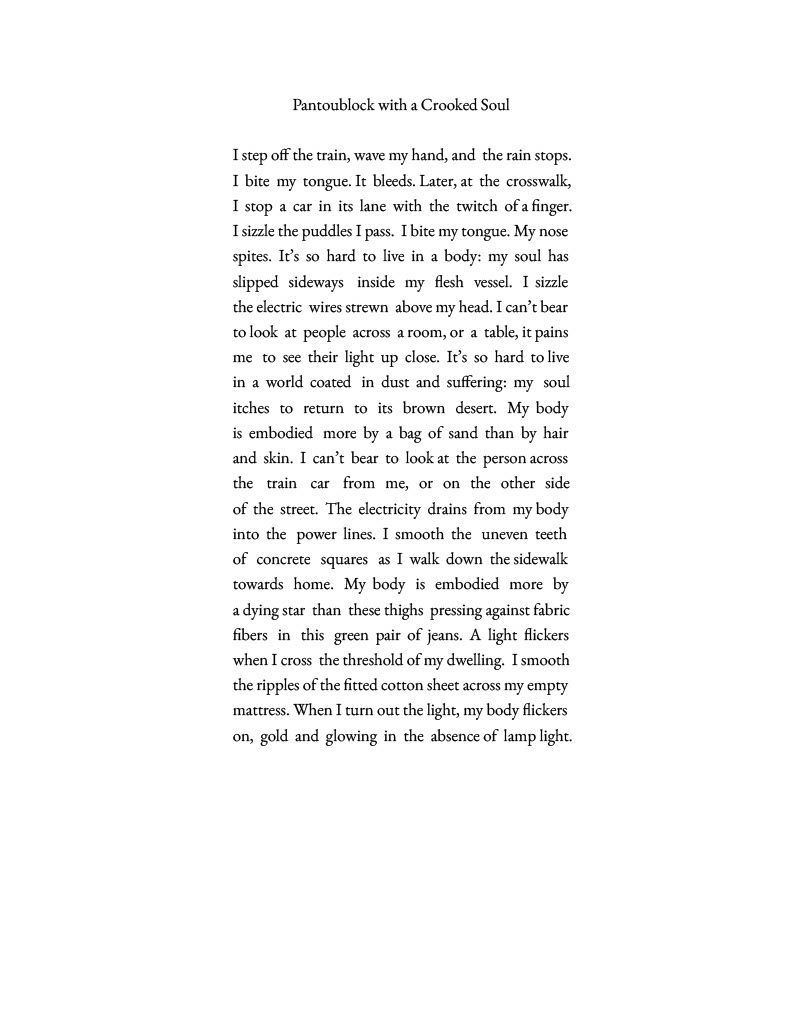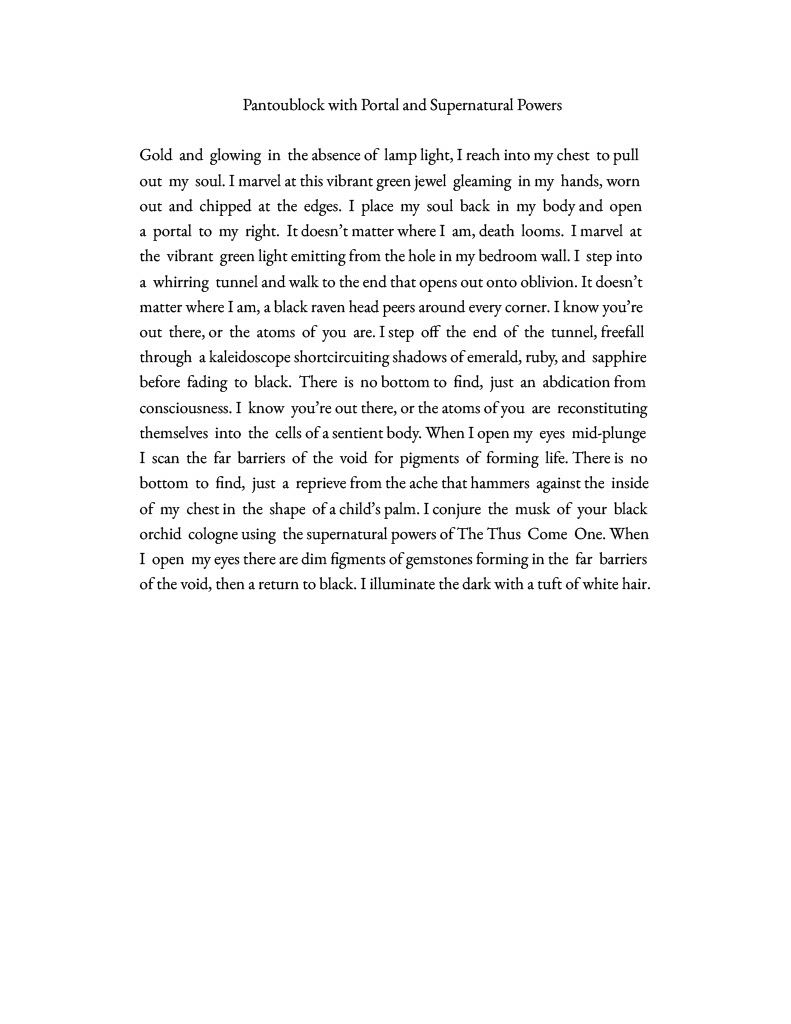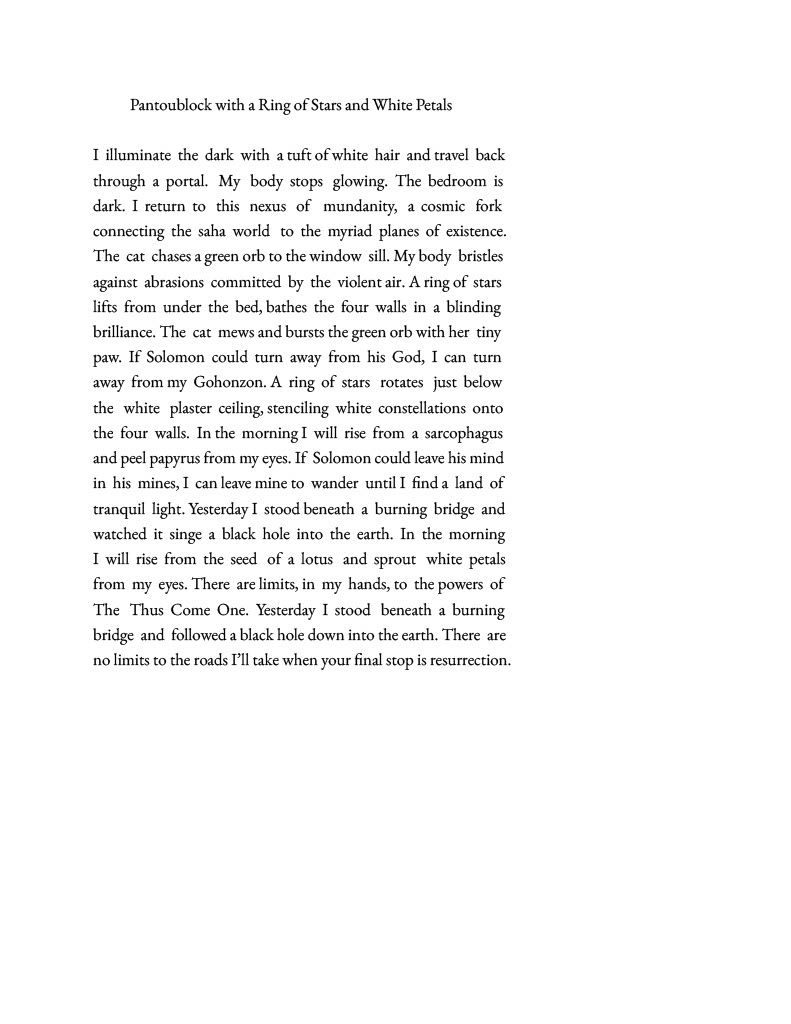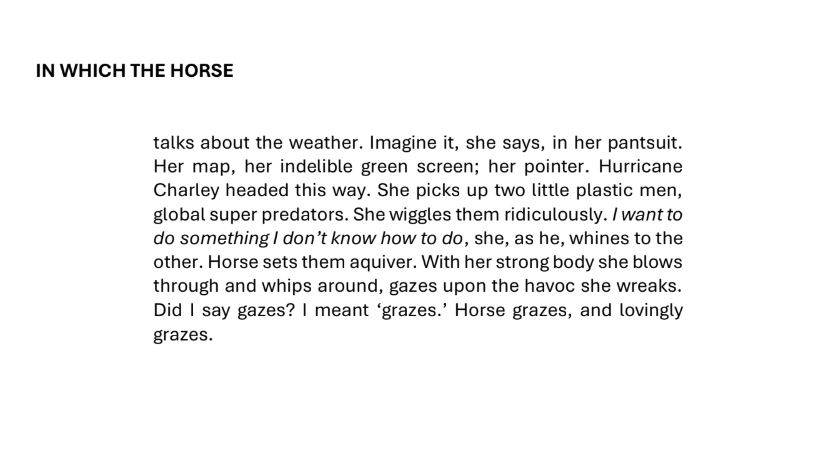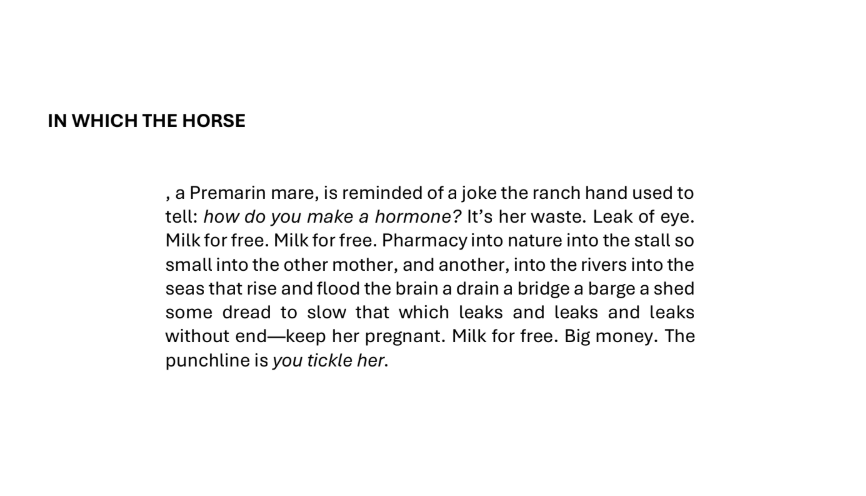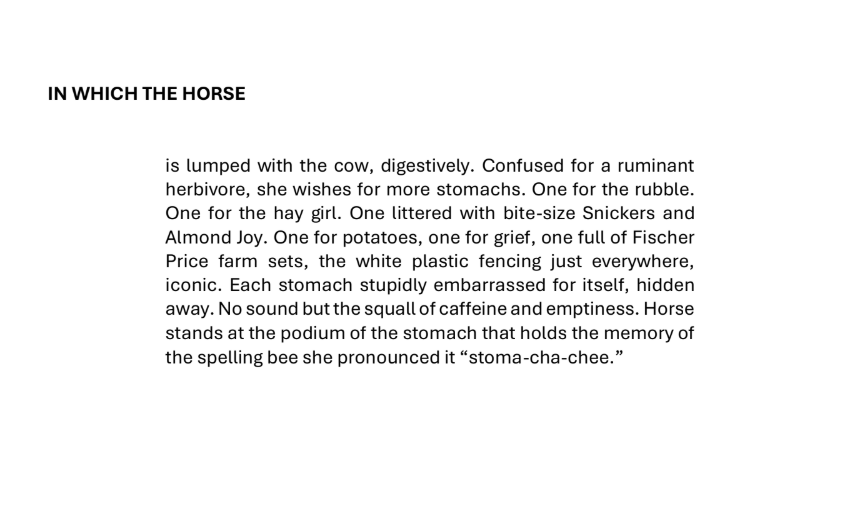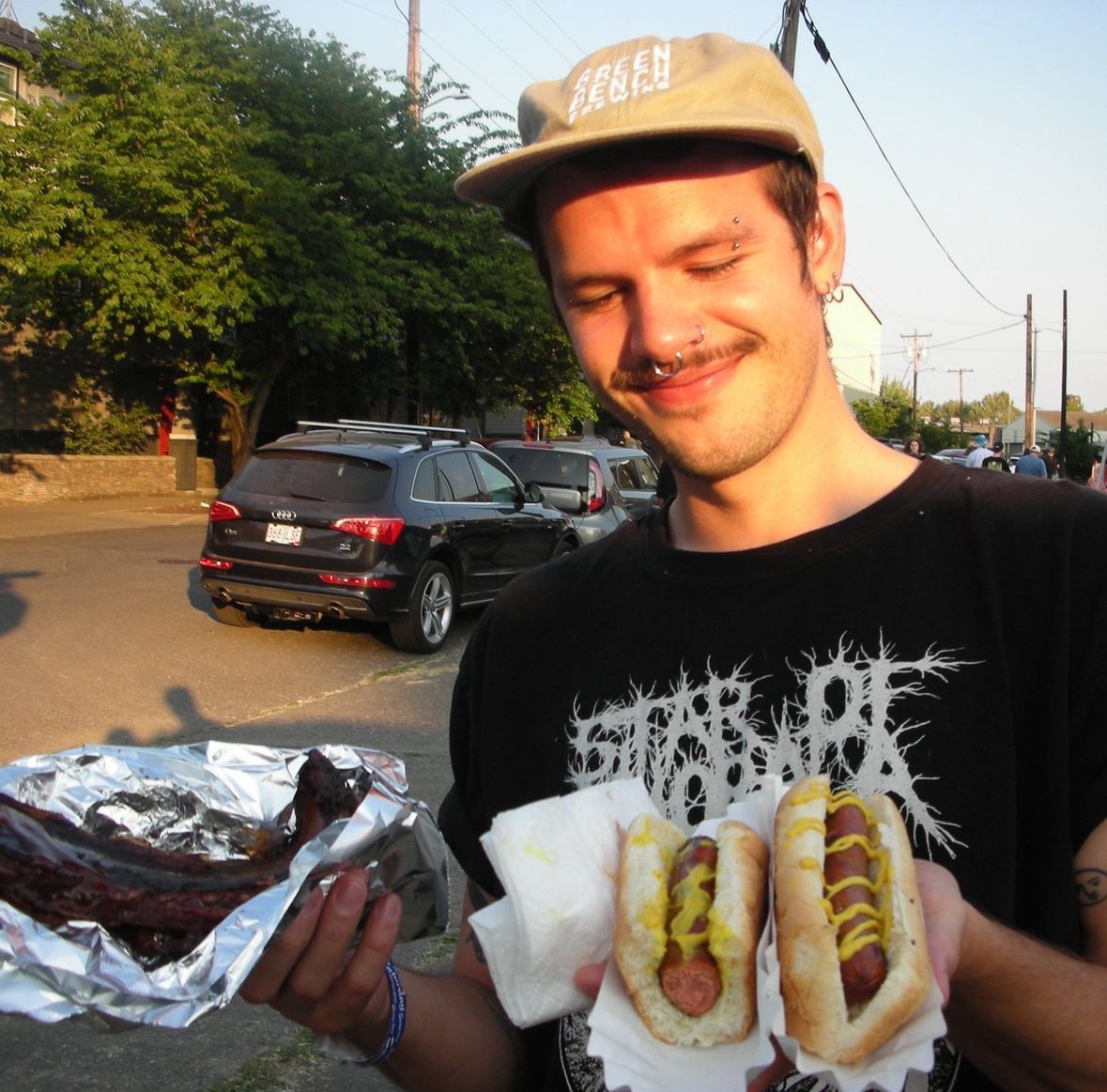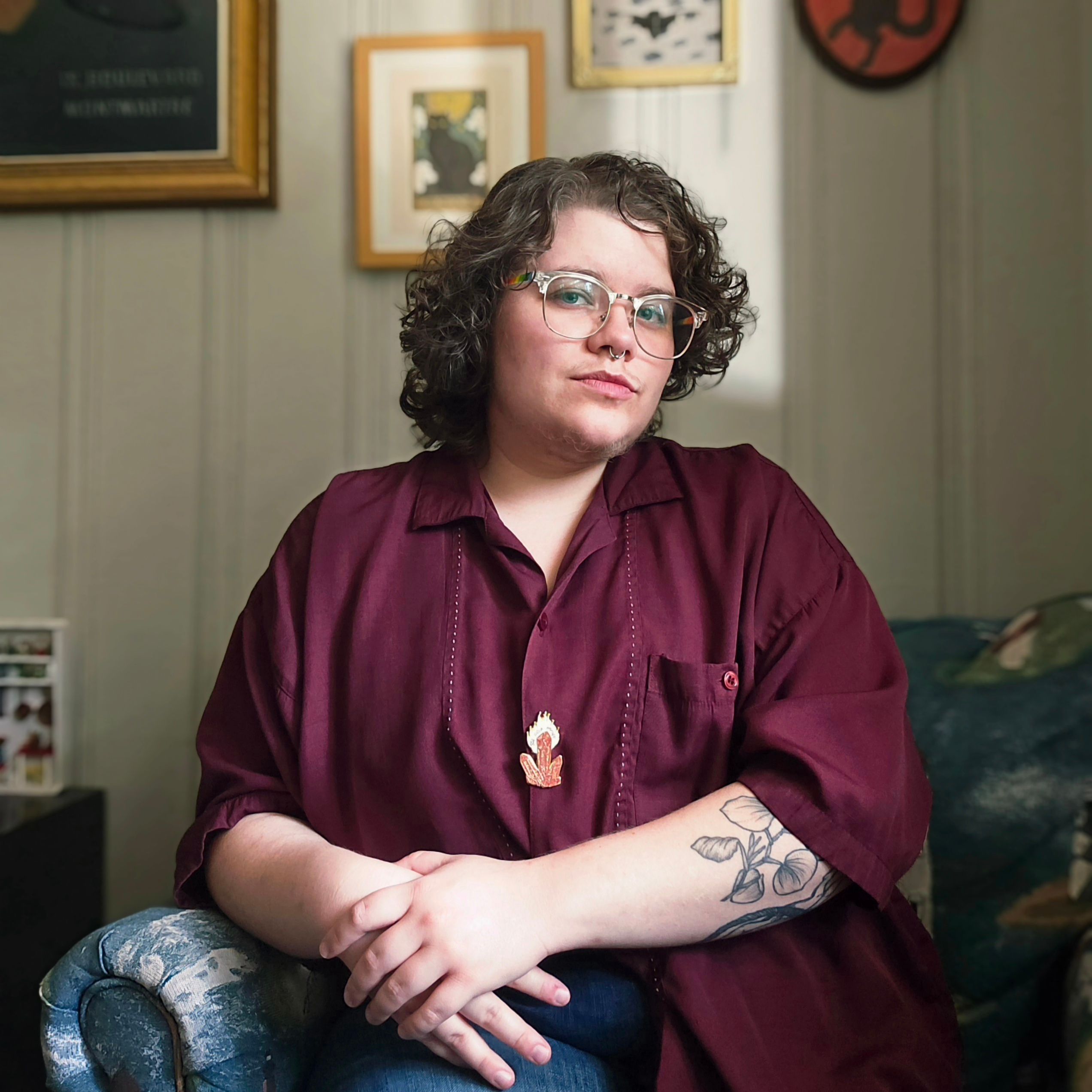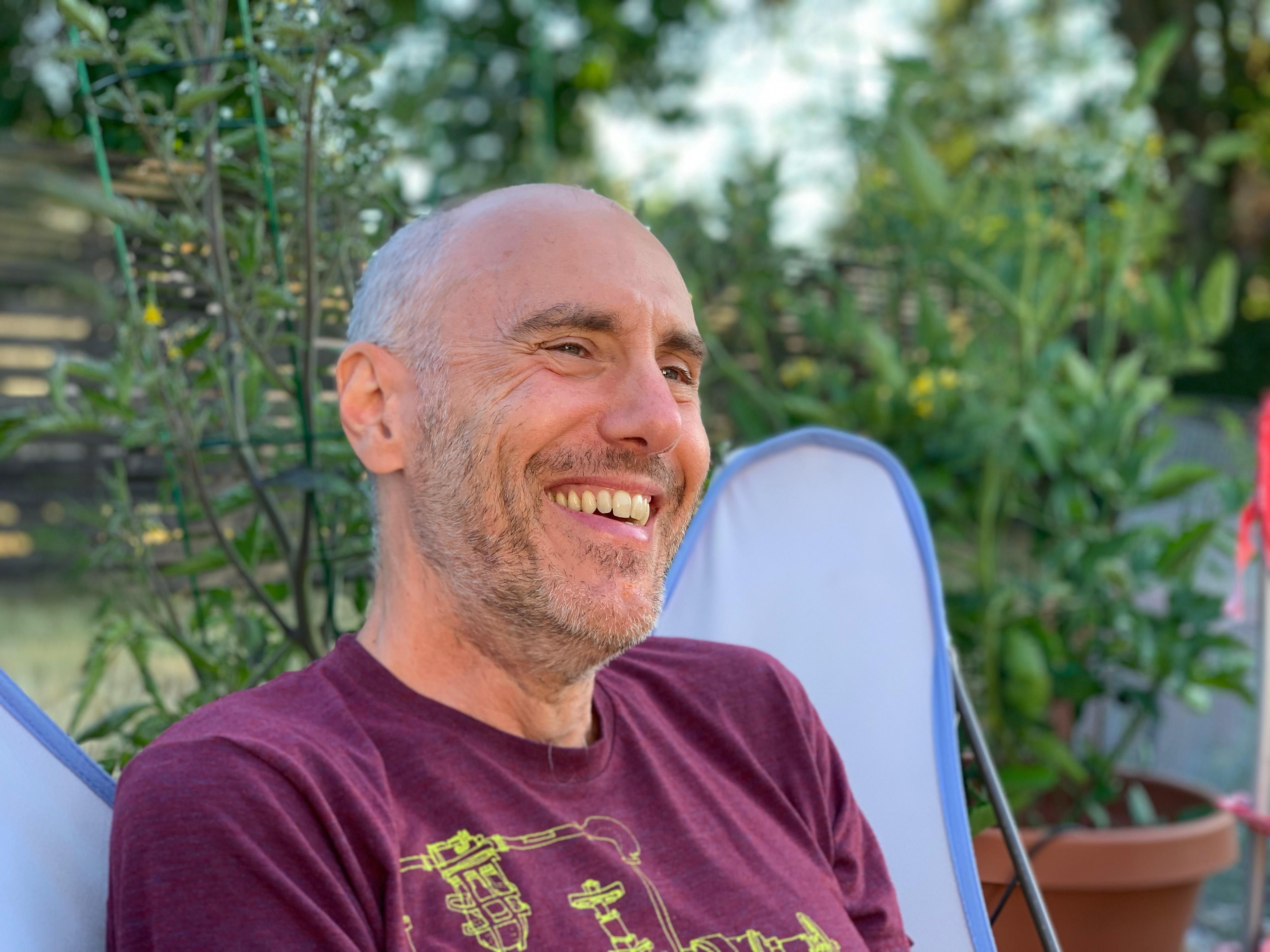I was water, and then I was a girl.
I called to my mother
in a register only she
could hear. In secret,
she poured the contents of her diaphragm
back into her body, and for years
my father thought I was an accident.
But I was subterfuge,
a code, a spell hiding, invisible ink
under black light.
Did you know there are two
versions of the world’s
beginning in the Book of Genesis,
placed one after the other
with no explanation, no comment,
just two stories that cannot both
be true? I carry my own, one in each hand.
Here, an apple. Here, a rotting core.
Colleen Abel
Colleen Abel is a multigenre writer and the editor-in-chief of Bluestem magazine. Her work has appeared in venues such as Lit Hub, Cincinnati Review, The Southern Review, Colorado Review, Pleiades, The Stinging Fly, and in several anthologies of Disabled writers. She's published three collections of poetry, including the full-length REMAKE, and the hybrid chapbook DEVIANTS, which won Sundress Publications' Chapbook Prize. She has been awarded fellowships from UW-Madison’s Institute for Creative Writing, Virginia Center for the Creative Arts, Ragdale, and numerous other organizations.

